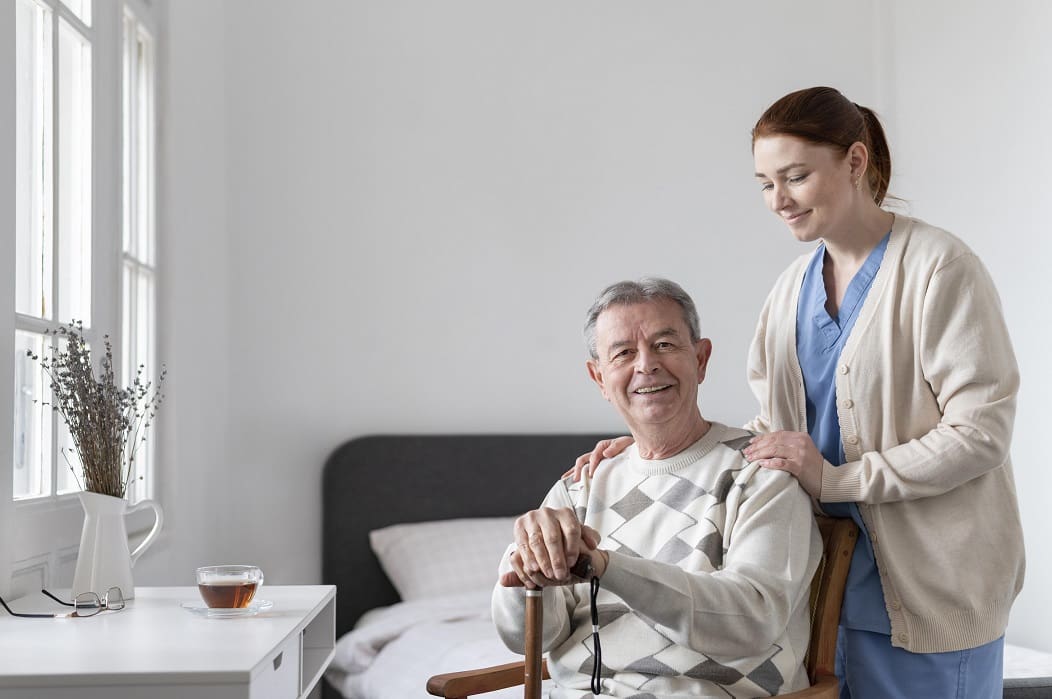
Caring For An Elderly From Afar: How to Support a Parent You Can’t Always Be There For
June 24th, 2025Caregiver Agency, Caregiver Service, caregiver support, Home Care, In Home Care,
When someone you love needs more care than ever—and you live too far away to knock on the door—it can feel like your hands are tied, when you are Caring For An Elderly From Afar. But it does not need to be as overwhelming . Thanks to a wave of practical tech and service options, long-distance caregiving has become something you can manage proactively, thoughtfully, and with real peace of mind. This isn’t about replacing presence with gadgets. It’s about staying present in new ways, with tools that extend your reach and voice across the miles.
Emergency Response
One of the first things you worry about? What happens if something goes wrong and no one’s there. That’s why finding a top-rated fall detection system is a non-negotiable starting point. These setups do more than buzz for help, they detect motion, sense impact, and alert emergency contacts without the need to press a button. Some even track location changes
and unusual patterns, so you get a heads-up before it becomes a headline. When seconds count, these tools deliver. No guesswork. Just action.
Companionship
Being alone too often isn’t just hard, it’s harmful. But tech has gotten kinder. Enter the new generation of digital presence: AI companions to help fight loneliness. These voice-driven systems talk, play music, remind about meds, even initiate check-ins based on routines. And this isn’t about faking family, it’s about creating rhythm, easing silence, and giving you another channel to listen through. A little presence goes a long way.
Home Safety
Sometimes safety looks like a locked back door. Or a hallway that lights up when footsteps hit the floor. That’s what smart sensors boost safety are for. Think appliance shut‑offs, voice‑activated lighting, even alerts if the stove stays on too long. You don’t have to redesign the house, just tune it to respond better. The right upgrade can feel like a second set of eyes.
Doctor Access Medical help shouldn’t hinge on someone driving across town. With available telehealth options, your loved one can see their doctor on a screen, send secure messages, and manage prescriptions without ever leaving the couch. These platforms aren’t just convenient, they’re clarifying. You stay in the loop. They get care when it matters. And you both sleep easier.
Location Tracking
Wandering is rare until it’s not. A single afternoon out of bounds can shift everything. If you’re worried, check out whether GPS tracking is worth it for your situation. These devices can send real-time location alerts, trigger notifications if boundaries are crossed, and let you know someone made it home. Freedom matters, but so does knowing when freedom starts to fray.
Financial Clarity
Money talk gets messy, fast. Especially when siblings share caregiving duties across state lines. Tools like shared spreadsheets help, but finding a free budget template online makes things less abstract. It gives you something concrete to point at. You’ll still need conversations, but now they’ll start with numbers, not feelings.
Caregiver Support
Sometimes the signs aren’t loud. They’re quiet. Missed meals. Clothes worn backward. Conversations that repeat like clockwork. That’s when it might be time to explore in-home support, even just a few hours a day. Services like Polish Care Services can step in gently—offering companionship, personal care, and daily help that respects independence while adding structure. It’s not surrendering control—it’s keeping things steady before they spiral.
You don’t need to do it all. But you do need to stay connected, to people, to routines, to the little red flags that pop up when something shifts. Tech won’t love your parent the way you do. But it can help you show up, stay close, and make the distance feel smaller than it is. That’s the goal.
Credit: Denise Long

Preparing for the Holidays with Your Elderly Loved One
November 13th, 2024Companion Caregiver, Companion Senior Care, Elderly Care, In Home Care, Polish Care Services, Preparing for the Holiday,
The holiday season, with its joy and festivities, provides a perfect opportunity to cherish time with family, especially our elderly loved ones. However, for seniors, especially those requiring care, this time can also bring challenges. Here’s a comprehensive guide on how to prepare for the holidays, ensuring they are enjoyable and stress-free for everyone involved, focusing on the essential roles of companion caregivers and the broader scope of elderly care.
Understanding the Needs of Elderly During the Holidays
Health Considerations:
– Medical Needs: Before diving into holiday planning, review your loved one’s health with their healthcare provider. Ensure any necessary adjustments to medication or diet are made to fit the holiday schedule.
– Mobility: Consider how holiday festivities might impact mobility. If your loved one uses mobility aids, ensure they are in good condition.
Emotional and Social Needs:
– Isolation: Holidays can be particularly isolating for seniors. Plans should include ways to engage them socially.
– Memory Issues: For those with cognitive impairments like dementia, routine is key. Introduce holiday changes gradually.
The Role of Companion Caregivers
Companionship:
– Engagement: Companion caregivers can play a pivotal role in keeping seniors engaged. Activities could range from crafting holiday decorations to watching classic holiday movies together.
– Outings: If feasible, outings to see holiday lights or community events can be delightful, with caregivers ensuring safety and comfort.
Support in Daily Activities:
– Meal Preparation: Holiday meals might require different preparations. Caregivers can assist in cooking or adapting recipes to meet dietary needs without losing the festive spirit.
– Personal Care: Ensuring that personal care routines continue amidst holiday busyness is crucial for maintaining health and comfort.
Planning and Execution
Early Start:
– Shopping: Begin shopping early to avoid the last-minute rush, which can be overwhelming for seniors. Online shopping with caregivers can be a fun activity or a necessary convenience.
– Decorations: Involve your loved one in decorating to the extent they can. This not only makes them feel included but can also stimulate memory and cognitive functions.
Safety First:
– Home Environment: Ensure the home is safe for holiday activities. Secure decorations, manage cords to prevent tripping, and consider the placement of the Christmas tree or menorah to avoid fire hazards.
– Emergency Plan: Have an emergency plan in place. Know where the nearest hospital is, have emergency numbers accessible, and ensure caregivers are briefed on any specific health concerns.
Celebrating Together
Adapting Traditions:
– Simplifying: Sometimes, traditional celebrations might need scaling down. Focus on what truly matters; for instance, a small, intimate gathering might be more comforting than a large party.
– Inclusion: If your loved one can’t participate in every event, find ways to include them, like video calls during family gatherings.
Special Activities:
– Memory Sharing: Encourage storytelling sessions where seniors can share past holiday memories. This not only entertains but also preserves family history.
– Crafts and Cooking: Involve them in holiday crafts or simple cooking tasks they can manage, promoting a sense of contribution and creativity.
Caregiver Support
Respite for Family Caregivers:
– Professional Help: Consider hiring professional care during peak holiday activities to give family caregivers a much-needed break.
– Self-Care: Remind family caregivers to look after their own well-being, ensuring they also enjoy the holidays.
Training and Preparation:
– Handling Emergencies: Ensure caregivers are trained in first aid and know how to manage holiday-specific emergencies like food poisoning or falls.
– Cultural Sensitivity: If your traditions involve specific cultural practices, ensure caregivers are sensitive to these, enhancing the experience for everyone.
Technology in Elderly Care
Digital Engagement:
– Virtual Gatherings: Use technology to connect with family members who can’t visit in person. Caregivers can assist in setting up video calls or teaching seniors how to use these tools.
– Health Monitoring: Utilize health apps or devices to keep track of vitals or medication schedules, which can be particularly helpful during the chaotic holiday season.
Post-Holiday Care
Recovery and Reflection:
– Rest: After the festivities, ensure there’s ample time for rest. The excitement can be exhausting for the elderly.
– Review: Reflect on what worked well during the holidays and what could be improved for future celebrations, keeping notes for next year.
Conclusion
Preparing for the holidays with an elderly loved one involves a delicate balance of celebration, care, and safety. By leveraging the support of companion caregivers, embracing senior care practices, and adapting to the unique needs of elderly care, you can create a holiday season that is not only memorable but also nurturing. This time of year can become a cherished period where love, care, and tradition intermingle, providing warmth and joy to all, especially those who might need a little extra attention during the festive times. Remember, the goal isn’t just to celebrate, but to do so in a way that honors and includes our elderly loved ones in every possible way. Polish Care Services provide non-medical assistance to seniors and disabled to enjoy quality of life, please contact us for more information.
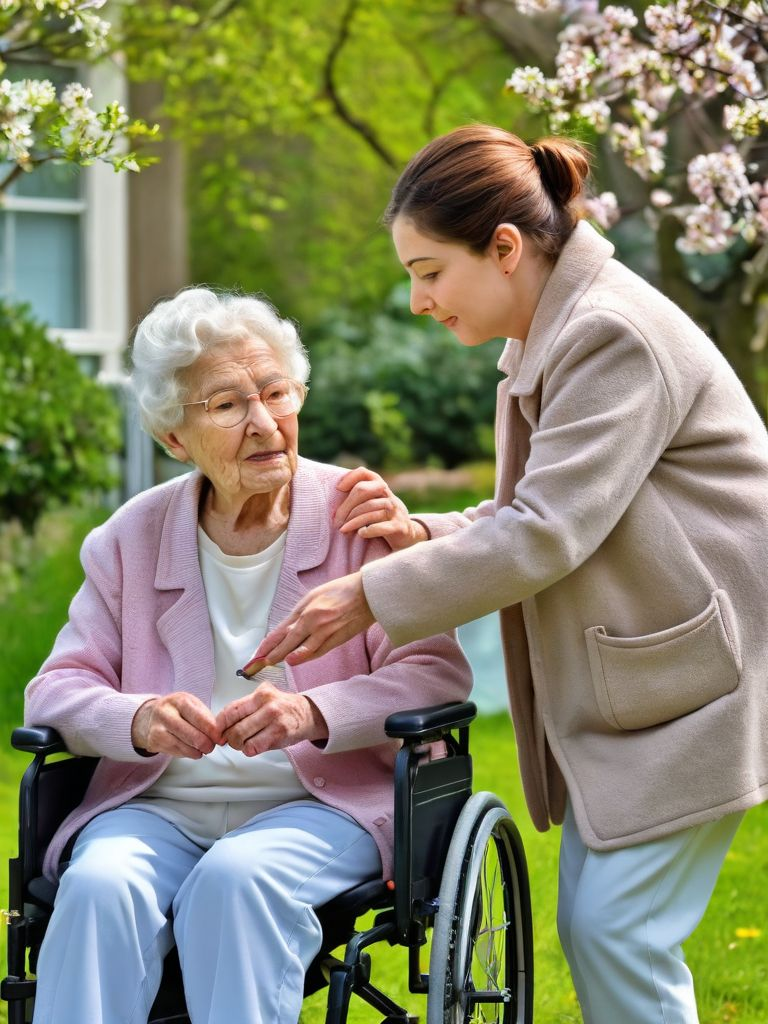
Springtime Activities For Seniors
April 5th, 2024Companion Caregiver, Elderly Care, In Home Care, Senior Services, Spring Activities,

The Healing Power of Compassion and Kindness for the Elderly
January 27th, 2024Elderly Care, In Home Care, Senior Services,
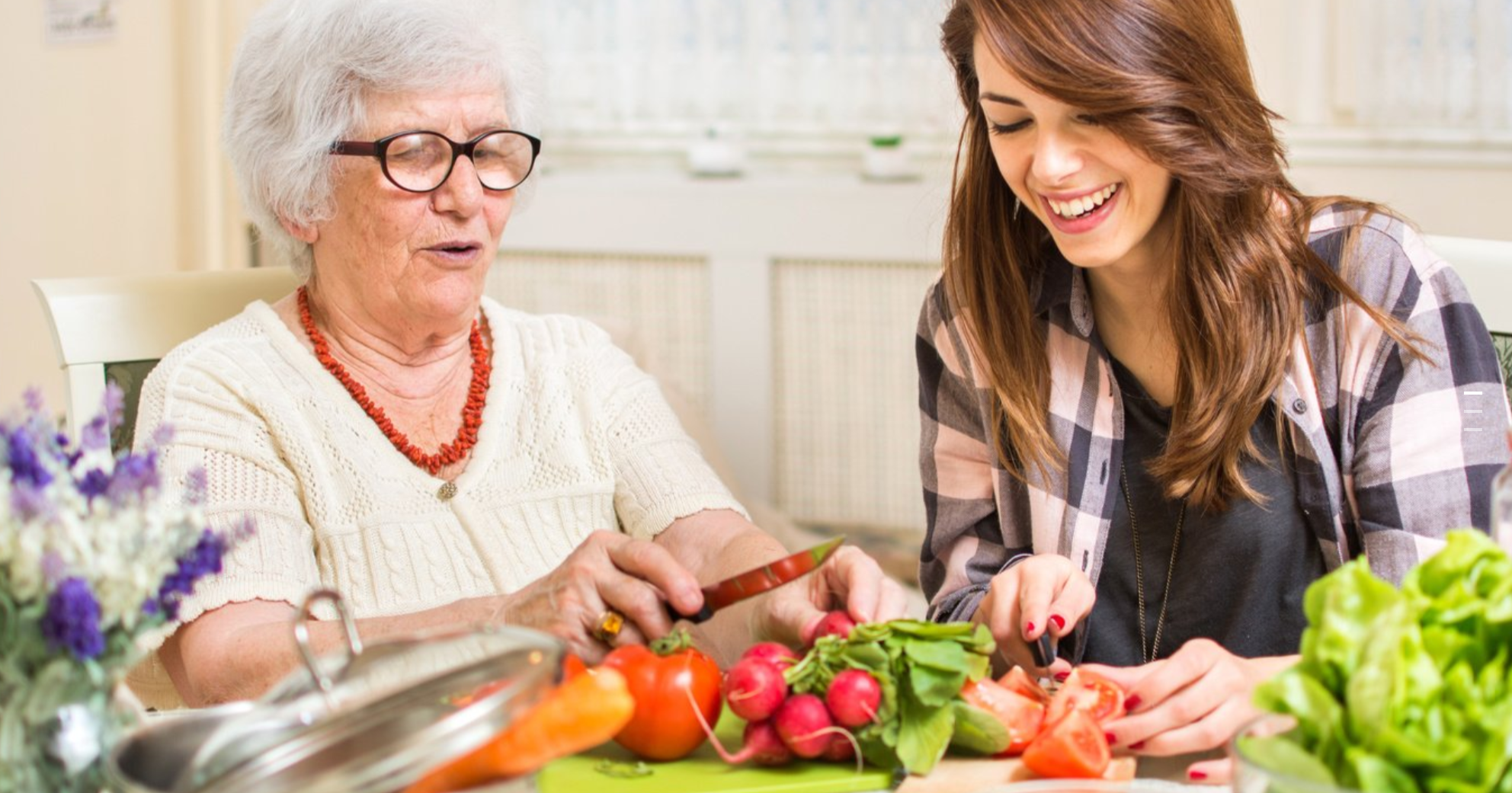
Transforming Lives: How Diet and Exercise Benefit the Elderly
November 7th, 2023Caregiver Service, Elderly Care, In Home Care,
Age has always been associated with changes in our body and overall health. As we grow older, our bodies become more fragile and susceptible to various health issues. However, the elderly can significantly improve their quality of life and overall well-being through proper diet and regular exercise. In this blog post, we will explore how these essential factors contribute to the welfare of older adults and emphasize the importance of elderly care, in-home services, and meals specially designed for seniors.
Enhancing Physical Health:
Maintaining an active lifestyle promotes physical health, reduces the risk of chronic illnesses, and enhances mobility in older adults. Regular exercise, even light activities such as walking or tai chi, can aid in improving balance, flexibility, cardiovascular health, and muscle strength. This, in turn, helps seniors prevent falls, fractures, obesity, and age-related diseases.
Mental Well-being:
Physical activity not only benefits the elderly’s physical health, but also positively impacts mental well-being. Engaging in regular exercise stimulates the release of endorphins, known as the “feel-good” hormones, promoting a sense of happiness and reducing anxiety and depression. Physical activity can also help enhance cognitive function, memory, and overall brain health.
Weight Management:
Proper diet and exercise play a crucial role in weight management among older adults. As metabolism slows down with age, it becomes easier to gain weight. A balanced diet rich in essential nutrients, in combination with regular exercise, can help control weight, prevent obesity, and reduce the risk of developing diseases like diabetes and heart conditions.
Boosting Immune System:
As we age, our immune system weakens, making older adults more prone to infections and illnesses. A healthy diet and regular exercise strengthen the immune system, providing seniors with added protection against common ailments such as colds, flu, and infections. Consuming a variety of fruits, vegetables, and whole grains, along with exercise, can improve immune function and increase longevity.
Social Engagement:
Diet and exercise not only impact physical health but also facilitate social engagement among the elderly. Engaging in group exercise programs, local fitness classes, or simply joining a walking group can help seniors build meaningful connections, reduce feelings of isolation, and improve their overall mental health. Furthermore, elderly care services and in-home assistance can provide access to specially designed exercise programs, fostering companionship and promoting well-being.
Importance of Elderly Care Services:
Elderly care services are vital for seniors who require assistance with daily activities such as meal preparation, medication management, and personal hygiene. These services often incorporate tailored exercise programs aimed at improving physical and mental health. Professional caregivers are trained to provide personalized care, ensuring that seniors receive the necessary support to implement healthy diets and exercise routines.
Meals for Seniors:
Nutrition plays a fundamental role in maintaining the health and well-being of the elderly. With age, nutritional requirements change, necessitating the development of meals specifically designed for seniors. These meals are carefully balanced to provide essential vitamins, minerals, and nutrients that promote healthy aging and support overall wellness. They consider factors such as reduced calorie needs, increased fiber intake, and managing chronic conditions. Meal delivery services specializing in senior nutrition are an excellent option for ensuring elderly individuals receive the balanced meals they need.
Diet and exercise have a profound impact on the physical and mental well-being of the elderly. Regular physical activity and consuming nutritious meals can help older adults maintain a healthy weight, enhance their overall health, and prevent or manage chronic diseases. In-home care services and specially tailored meals for seniors further aid in supporting the needs of the elderly population. By prioritizing diet and exercise, we can transform the lives of the elderly, empowering them to age gracefully while enjoying an improved quality of life.
Credit: Millie Brown
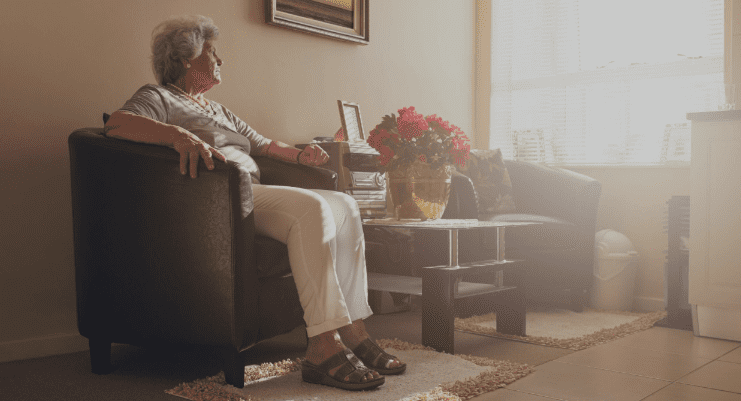
58 Ways To Keep Seniors Safe In Their Home
October 16th, 2023aging in place, Caregiver Service, Companion Caregiver, In Home Care, in home care assistance, Senior Care Services,
Many seniors prefer to live independently in their own homes for the comfort, satisfaction of familiarity and self-reliance; however, this can also pose some risks and challenges. To ensure their safety and comfort in their home, here are 58 ways that can help seniors stay safe in their homes:
– Install smoke detectors and carbon monoxide detectors on every floor and test them regularly.
– Keep a fire extinguisher in the kitchen and other areas where fires may occur.
– Avoid using candles, matches, or lighters near flammable materials or curtains.
– Replace frayed or damaged cords and plugs of electrical appliances and devices.
– Use surge protectors and avoid overloading outlets or extension cords.
– Turn off appliances and devices when not in use or before going to bed.
– Keep a flashlight and extra batteries in an accessible location in case of a power outage.
– Install grab bars and non-slip mats in the bathroom, especially near the bathtub, shower, and toilet.
– Use a shower chair or bench if standing for long periods is difficult or risky.
– Adjust the water heater temperature to prevent scalding or burns.
– Keep medications in their original containers and store them in a cool, dry, and secure place.
– Dispose of expired or unused medications properly and safely.
– Follow the instructions and dosages of your medications and supplements carefully and consult your doctor or pharmacist if you have any questions or concerns.
– Use a pill organizer or dispenser to help you remember when to take your medications and supplements.
– Keep a list of your medications, allergies, medical conditions, and emergency contacts in your wallet or purse and on your refrigerator door.
– Wear a medical alert bracelet or necklace if you have a chronic or serious condition that may require immediate attention.
– Keep a first aid kit stocked with bandages, antiseptics, pain relievers, and other essentials in an accessible location.
– Seek medical attention promptly if you experience any signs or symptoms of a stroke, heart attack, infection, or other serious condition.
– Schedule regular check-ups and screenings with your doctor and dentist and follow their recommendations for preventive care and treatment.
– Get vaccinated against seasonal flu, pneumonia, shingles, COVID-19, and other diseases that may affect seniors more severely.
– Eat a balanced and nutritious diet that meets your dietary needs and preferences.
– Drink plenty of water and fluids to stay hydrated and avoid dehydration.
– Limit your intake of alcohol, caffeine, salt, sugar, and processed foods that may affect your blood pressure, blood sugar, cholesterol, or weight.
– Take vitamin D and calcium supplements to support your bone health and prevent osteoporosis.
– Exercise regularly to maintain your strength, flexibility, balance, and endurance. Choose activities that you enjoy and are suitable for your fitness level and abilities.
– Consult your doctor before starting a new exercise program or changing your existing one.
– Warm up before exercising and cool down after exercising to prevent injuries or soreness.
– Wear appropriate clothing, footwear, and equipment when exercising.
– Avoid exercising outdoors when the weather is too hot, cold, humid, or polluted.
– Stay indoors or seek shade when the UV index is high to prevent sunburns or skin cancer.
– Wear sunscreen, sunglasses, hat, and protective clothing when exposed to the sun.
– Avoid smoking or exposure to secondhand smoke that may increase your risk of lung cancer, COPD, heart disease, stroke, and other conditions.
– Manage your stress levels by practicing relaxation techniques such as deep breathing, meditation, yoga, tai chi, or massage.
– Seek professional help if you experience any signs or symptoms of depression, anxiety, dementia, or other mental health issues.
– Stay socially connected with your family, friends, neighbors, community groups, clubs, or organizations that share your interests and hobbies.
– Use technology such as phone calls, video calls, emails, text messages, social media, or online platforms to communicate with your loved ones and access information and services.
– Learn new skills or pursue new hobbies that challenge your mind and keep you engaged and stimulated.
– Play games or do puzzles that improve your memory, concentration, logic, or creativity.
– Read books or magazines that expand your knowledge or entertain you.
– Watch movies or shows that make you laugh or inspire you.
– Listen to music or podcasts that soothe you or motivate you.
– Keep a journal or diary that helps you express your thoughts and feelings.
– Volunteer for a cause or organization that aligns with your values and passions.
– Adopt a pet or plant that provides you with companionship and responsibility.
– Review your finances and budget and plan for your future needs and goals.
– Seek advice from a financial planner, lawyer, or accountant if you need help with managing your money, assets, or taxes.
– Update your will and estate plan and inform your family or beneficiaries of your wishes.
– Review your insurance policies and coverage and make any changes or adjustments as needed.
– Declutter your home and belongings and donate, sell, or discard anything that you no longer need or use.
– Organize your home and belongings and label, store, or display them in a way that makes them easy to find and access.
– Make your home more accessible and comfortable by installing ramps, rails, lifts, or other devices that help you move around or reach things.
– Make your home more energy-efficient and eco-friendly by using LED bulbs, smart thermostats, solar panels, or other products that reduce your electricity consumption or carbon footprint.
– Make your home more secure and safe by installing locks, alarms, cameras, or other systems that deter intruders or alert you of any threats.
– Hire a professional or ask a friend or family member to help you with any home repairs, maintenance, or improvement projects that you cannot do yourself.
– Consider hiring a caregiver, housekeeper, gardener, chef, homemaker or companion or other service provider to help you with any personal care, household chores, or other tasks that you need assistance with.
– Consider using a delivery service, online shopping, or curbside pickup to order groceries, meals, medications, or other items that you need or want.
– Consider using public transportation, ride-sharing, or taxi services to get around if you do not drive or have a car.
– Consider joining a senior center, assisted living facility, or retirement community if you need more social interaction, support, or care.
This is an extensive list to ensure the safety of seniors in their home, some of which may have already been utilized however there are additions help to enhance the safety of our loved ones. Please call Polish Care Services for in home care assistance for seniors.

AI Benefits for the Elderly and Disabled
June 15th, 2023aging in place, Alzheimer's Care, Caregiver Employment, Caregiver job, Caregiver Service, Companion Caregiver, Dementia Care, Elderly Care, Fall Activities for Seniors, Hire CNA, Hire HHA, Hire PCA, Home Healthcare, Homecare, House Cleaning, In Home Care, Long Term Care, Outdoor Activities for Seniors, Polish Care Services, Retirement Plans for Seniors, Senior Care Services, Spring Activities, Summer Activities for Seniors,
Although there is so much consternation and hype, Artificial Intelligence (AI) can benefit the elderly and disabled population in many ways. Some of the benefits include:
- Health monitoring and assistance through wearable devices and smart home systems: AI can be used to monitor the health of elderly individuals through wearable devices and smart home systems. These devices can track vital signs, such as heart rate and blood pressure, and alert caregivers or medical professionals if there are any concerning changes. Smart home systems can also be used to monitor the movements and activities of elderly individuals, providing an additional layer of safety and security.
- Medication management: AI can assist with medication management by providing reminders to take medications, tracking medication usage, and alerting caregivers or medical professionals if there are any missed doses or potential drug interactions.
- Social interaction and companionship: AI can provide social interaction and companionship to elderly individuals through virtual companions, such as chatbots or virtual assistants. These companions can engage in conversation, provide entertainment, and help alleviate feelings of loneliness and isolation.
- Cognitive stimulation and memory support: AI can provide cognitive stimulation and memory support to elderly individuals through games, puzzles, and other activities designed to exercise the brain and improve cognitive function. AI can also assist with memory support by providing reminders for important events or appointments.
- Daily living assistance: AI can assist with daily living tasks, such as meal preparation, housekeeping, and personal care. This can help elderly individuals maintain their independence and continue living in their own homes for longer.
- Increased independence: By providing assistance with daily living tasks, health monitoring, medication management, and other areas, AI can help elderly individuals maintain their independence and continue living in their own homes for longer.
- Lower healthcare costs, better transportation, and longer employment: AI can help lower healthcare costs by improving health monitoring and early detection of potential health issues. AI can also assist with transportation by providing ride-sharing services or autonomous vehicles designed for elderly individuals. Additionally, AI can help extend employment opportunities for elderly individuals by providing job-matching services or remote work opportunities.
- Virtual companions: As mentioned earlier, virtual companions such as chatbots or virtual assistants can provide social interaction and companionship to elderly individuals.
- Anti-aging research: AI can assist with anti-aging research by analyzing large amounts of data to identify potential treatments or preventative measures for age-related diseases.
- At-home health monitoring: As mentioned earlier, AI can assist with at-home health monitoring through wearable devices and smart home systems.
- Smart device-assisted daily living: Smart devices equipped with AI technology can assist with daily living tasks such as turning on lights, adjusting the thermostat, or locking doors.
- Smart device-assisted fall detection: Smart devices equipped with AI technology can detect if an elderly individual has fallen and alert caregivers or medical professionals.
- Improved quality of care: By providing assistance in areas such as health monitoring, medication management, daily living assistance, and more, AI can help improve the overall quality of care for elderly individuals.
AI is also helpful in intelligent tracking of biometric information to early diagnosis of diseases, understanding the treatment pathways, and helping clinicians to take care of elderly and disabled people and treat them more efficiently.
Polish Care Services team provides blogs and news articles that are not only informative and entertaining, but can enhance the wellbeing of seniors and disabled in Connecticut and Sarasota County in Florida
Credit: Bing AI, Google AI, Peter Powell
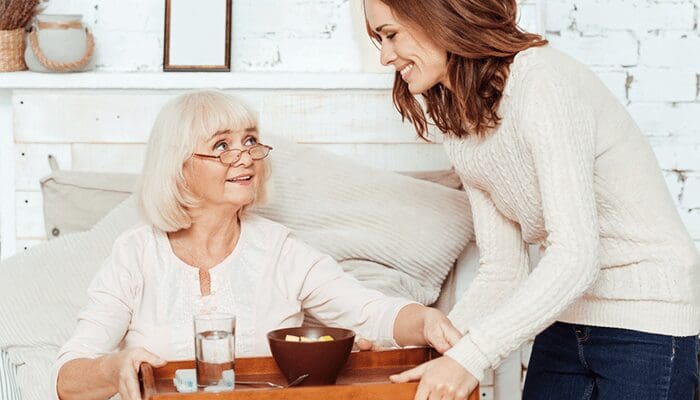
The Benefits of a Caregiver Agency
June 13th, 2023aging in place, Alzheimer's Care, Caregiver Employment, Caregiver job, Caregiver Service, Companion Caregiver, Dementia Care, Elderly Care, Hire CNA, Hire HHA, Hire PCA, Home Healthcare, House Cleaning, In Home Care, Long Term Care, Outdoor Activities for Seniors, Polish Care Services, Retirement Plans for Seniors, Senior Care Services, Spring Activities, Summer Activities for Seniors,
Caregiving is a rewarding but challenging job that requires compassion, patience, and skill. Many people who need assistance with daily living tasks, such as seniors, people with disabilities, or people recovering from illnesses or injuries, prefer to receive care at home rather than in a facility. However, finding and hiring a reliable, qualified, and affordable caregiver can be difficult and time-consuming for families. That is why many families choose to work with a caregiver agency, which can offer many benefits over hiring an independent caregiver.
A caregiver agency is a registered business that employs caregivers and sends them to the home of the care recipient to provide in-home care. The agency can provide medical care or non-medical care, depending on the needs and preferences of the client. The agency also takes care of the administrative aspects of hiring and managing the caregivers, such as background checks, payroll, scheduling, training, and supervision.
Some of the benefits of hiring a caregiver through an agency are:
- Quality: an agency typically will verify caregivers’ credentials, certifications, and experience in addition to performing background checks. An agency will provide continuous training and development to ensure caregivers and office staff are up to date with current skills and practices This ensures that the caregivers are qualified, competent, and up-to-date on the best practices and standards of care.
- Safety: Agencies are responsible for ensuring that the caregivers follow safety protocols when providing care at home. They provide workers compensation and liability insurance for their employees. This protects clients and caregivers in case of accident and work-related injuries.
- Flexibility: Agencies can offer a range of services and schedules to suit the needs and preferences of different clients. They can provide non-medical and other services that may suit the clients needs. Whether it is hourly services, live in assistance, long term or temporary services, The agency will match the caregiver that is considered a best fit for the client based on personality, skills, experience and availability.
- Reliability: Agencies will have a pool of caregivers who is able to cover desired shift or back up assistance in case of emergencies or absences. This means that the client will always have someone to provide care at home without interruption or inconvenience. They can also manage issues or complaints that may arise between the client and the caregivers.
- Support: Agencies can provide additional support and resources for both the client and the family. They can help to coordinate other services or referrals such as medical appointments, social activities, transportation, equipment. They can also provide emotional support and guidance for the client and family members who are involved in caregiving.
In conclusion, hiring a caregiver through an agency can offer many benefits for both the client and the family. It can ensure quality, safety, flexibility, reliability, and support for in-home care. It can also save time and hassle for families who are looking for a trustworthy and affordable caregiver. Therefore, working with an agency can be a smart choice for families who need help with caregiving at home.
Polish Care Services is a Homemaker Companion agency registered in Connecticut and Florida that provides support services for seniors and disabled, whether it is live in services, hourly support, or overnight assistance. The supportive office team works with the client to find a match for their needs and is a constant support for the client and staff throughout the process.
Credit: Madeline Sinatro
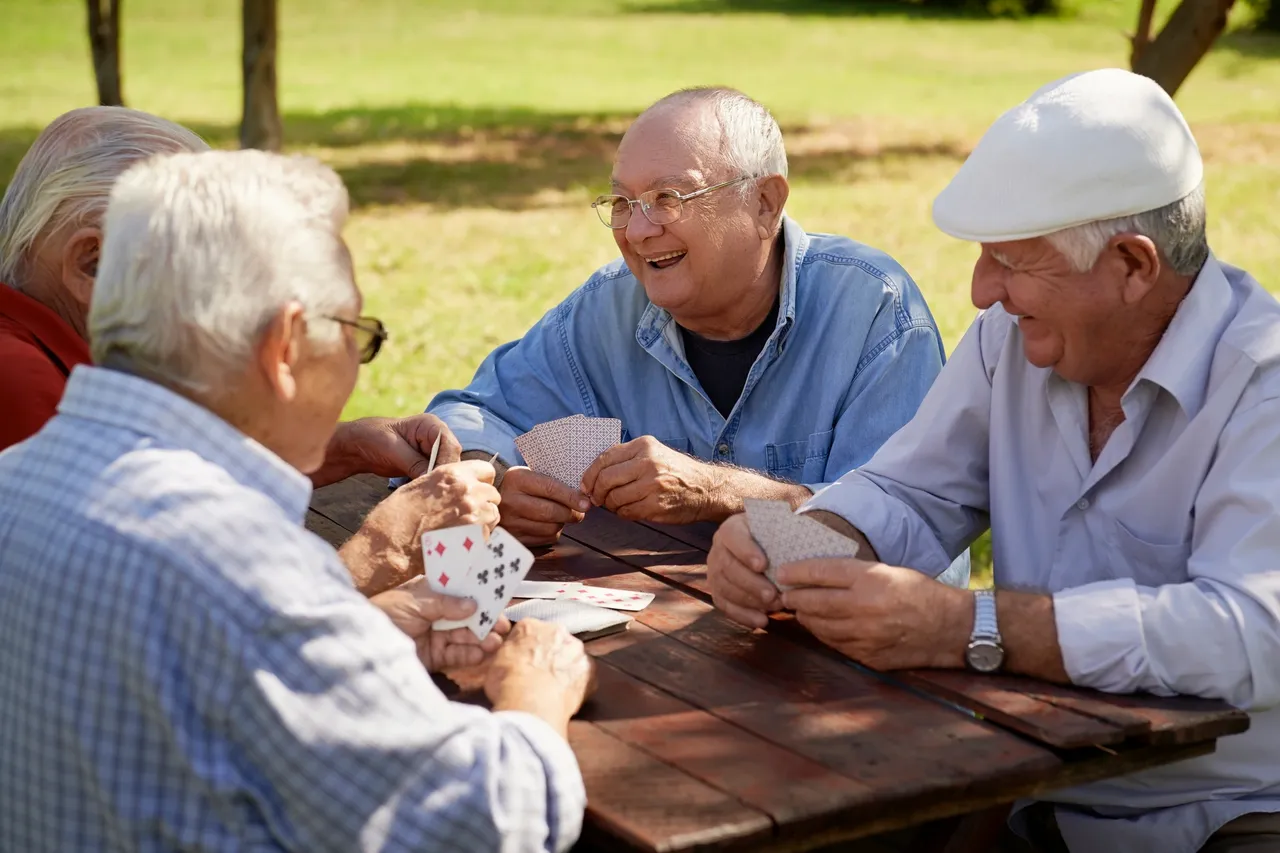
Resources to Help Seniors Who Have Few Relatives Nearby
May 24th, 2023aging in place, Alzheimer's Care, Caregiver Employment, Caregiver job, Caregiver Service, Companion Caregiver, Dementia Care, Elderly Care, Fall Activities for Seniors, Home Healthcare, In Home Care, Long Term Care, Retirement Plans for Seniors, Senior Care Services,
Aging brings many challenges as well as joys. While it’s generally good fortune to have a long life, it’s even better if you have family nearby to offer help and companionship. Sometimes, seniors live far from family, though. In these cases, Polish Care Services suggests you make use of the following resources for managing daily life.
Maintaining a Social Life
Loneliness can be a risk factor for health issues, and we all need companionship. Here are some ideas to help seniors develop and maintain social connections.
- Consider volunteering. After all, seniors can and do contribute an enormous amount by tutoring, mentoring, helping prepare or distribute food to those in need, fundraising, assisting with tax preparation, or working the polls during elections.
- Take a class. Post-retirement is a wonderful time to pursue interests you may not have had time for while working. Whether it’s a non-credit history or language class at the local university, or a dance or crafting class at a community center, you’ll meet others with common interests and get to explore something you enjoy.
- Take a part-time job. Although not everyone is eager to return to the nine to five grind, sometimes working a few hours a week can enhance a senior’s life by providing social connections, as well as the satisfaction of contributing effort to an important cause.
- Join a church, mosque, temple, or other organization that supports your spiritual beliefs. If you’re already a member, look into getting more involved there. It’s a great way to get to know others who share your values.
Health and Wellness
Good health is important to people at every age, and there are always things a person can do to increase their chances of staying well.
- Join an exercise class. The connection between exercise and improved mental health has been documented increasingly over the past decade. Many forms of exercise are appropriate for seniors, ranging from swimming to no impact aerobics and gentle weight training.
- Consider a mind-body practice, such as tai chi, qi gong, yoga, or mindfulness walking. These disciplines can improve cognitive functioning as well balance, strength, range of motions, and stress relief.
- Get an exercise or healthy eating buddy. Having another person counting on you can help with motivation and increase fun, whether you’re cooking a healthy meal together or meeting for a walk.
- Laughter is good medicine. It can increase the release of endorphins, and alter serotonin and dopamine levels in the body. Whether it’s a funny movie, a cartoon in a magazine, a hilarious book, or a podcast, finding reasons to laugh can make life more healthy, as well as more fun. This is yet another activity best done with a buddy.
Financial Assistance is Available
Most people worry to some degree about running out of money, managing money, or calculating and paying taxes in a timely and accurate manner. There are many local, state, and federal programs to help with planning and managing financial concerns.
- Help with the cost of prescriptions can be found via the Extra Help program through Medicare in some states. Other states have their own programs.
- Seniors and all adults may experience stress when faced with financial and other types of decisions.
- The IRS sponsors free tax help clinics for seniors. These can be quite helpful since many seniors have complex situations involving pensions, IRAs, or pre-death insurance benefits. Having free help from an expert can make the challenge of tax preparation less daunting.
Use Technology to your Advantage
While it’s difficult to visit in person fr
equently, if you live a great distance from your loved one, the internet can be a great help. Using Google Meet, Webex, Zoom, or another online program you can be in touch with family members who live almost anywhere. The internet is also a good way to shop, learn, and connect with others.
- Take some time to make sure your loved one is comfortable using the internet. Sometimes technology classes for seniors can be helpful, as well as social opportunities.
- Click for info on a useful tool for combining digital documents for your loved one so that they’re easier to find.
- Having a weekly online call with your senior loved one is a great way to stay in touch, share family news, and monitor how they are doing. While “Zoom fatigue” is something that happens to people of all ages, there are ways to counter it.
- Although an online meeting is better than no connection, it’s important to supplement it with ordinary phone calls, letters via email or US mail, and the occasional in-person visit.
Although living near the senior you care about is the easiest way to stay in touch and be of help, there are many resources for those who are at a distance. Make sure that you keep your loved one in the loop when making decisions that will affect them, and take advantage of the many programs and options available.
For exceptional services for seniors, those with disabilities, and those needing companionship, visit Polish Care Services today.
Credit: June Duncan

Types of Care Options for Seniors: Long Term Care Option
March 15th, 2023aging in place, Alzheimer's Care, Caregiver job, Dementia Care, Elderly Care, In Home Care, Long Term Care, Polish Care Services, Senior Care Services,
What is Long Term Care?
Long-term care is comprised of a wide range of support services provided over an extended time period. Long-term care is not limited solely to the elderly. Forty three percent of individuals requiring this are younger than 65 years old, this may also include disabled young adults. The majority of recipients of this care are 65 years of age and older.
It can be temporary or permanent. However, this depends upon the underlying reason for the care.
Temporary long-term care (weeks or months) may include:
- Recovery from an injury or illness
- Rehabilitation after a surgical procedure
- Rehabilitation after a hospital stay
- End of life medical services
Reason for permanent (on-going) long-term care (months and years) can include:
- Chronic medical conditions
- Chronic severe pain
- Need for supervision
- Permanent disabilities
- Need for assistance with activities of daily living
- Muscular impairment caused by Parkinson’s
- Cognitive impairment which may cause brain injury, Alzheimer’s or Dementia.
Long-term care need may be instantaneous, examples are, after a car accident, a heart attack or stroke. However, the care need increases gradually, as individuals age and become more frail or as disability or an illness worsens.
Although there are advanced studies, It is difficult to predict who will need long-term care and the duration of care needs, there are several factors that increase the risk of the need for long-term care
- As individuals age, they become more frail
- Women generally live longer, and often need long-term care for a periods twice as long as men.
- An individual’s risk increases with poor diet and lack of exercise, lifestyle and habits,
- Health and family history also plays a vital role.
Categories and Levels
Most long-term care falls into the category of personal or custodial care, rather than medical or skilled care. Personal care provides assistance with what is generally referred to as activities of daily living and/or provides for the supervision of an individual who is cognitively impaired.
Activities of Daily Living (ADLs) include the normal activities necessary to live at home. These personal care activities generally fall into four category types:
- Meal Preparation includes the planning and preparation of meals
- Household Chores includes routine tasks necessary for the upkeep of a home such as cleaning, laundry and yard maintenance
- Personal Hygiene includes bathing, grooming, dressing and toileting
- Errands and Transportation includes driving and shopping assistance
It’s easy to take being able to perform activities of daily living (ADLs) for granted until you or family member experiences a chronic or degenerative condition and can no longer accomplish these tasks alone.
There are four different levels or frequency of care Long-term care:
- Occasional assistance is performed a few times a month
- Minimal assistance may only be needed two to three times per week
- Significant assistance may be needed as often as five times per week
- Maximum assistance might be needed daily.
In-Home Care
Long-term care in the home is often provided by care providers or caregivers who may be enlisted to provide housekeeping, personal care and other functions to enhance the quality of life for the individual.
Long-Term Care Insurance
With the increasing costs of this care, this insurance may be the best way to ensure as you or your loved one get older, your long-term care needs are met and your assets are protected.
Polish Care Services provides trained and experienced caregivers to assist seniors or disabled in their home or care facilities. Call 860-255-8278 to see how our Polish Care Services caregivers can assist you or your loved one. long term care insurance options for seniors
